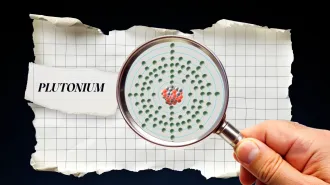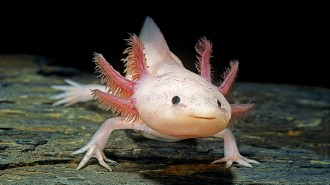Science inspires awe — and arguments
By Eva Emerson
- More than 2 years ago

What stood out this year was the unprecedented Ebola epidemic that hit West Africa and extended its tendrils around the globe. Other standouts included the highs and lows of the search for gravitational waves, a saga that had people on the street wondering about cosmic inflation and the history of the universe. And, of course, the spectacle of landing a robotic spacecraft on a comet, an awe-inspiring moment even for those who don’t consider themselves science fans. Other advances in our top five received less public attention, but are a marvel all the same. One is researchers’ increasingly sophisticated ability to extract and analyze ancient DNA, which is now being used to rewrite early human history. And neuroscientists built new roads into the terra incognita of human memory this year, offering a futuristic way to take the emotional sting out of bad memories.
Our list goes on with 20 other memorable stories from 2014. But many gems were left on the cutting room floor. Why does a zebra have stripes? The better to hide from flies, one new study declared. Scientists at the National Ignition Facility finally reported forward progress toward the goal of sustainable nuclear fusion. And it’s clear that human activity, such as deep wastewater storage, is triggering earthquakes in surprising places (check back next month for an in-depth report).
Many more great stories didn’t make the cut. But that’s understandable: Peer-reviewed scientific journals, by one estimate, number 24,000. Each publishes numerous reports every year, adding up to more than a million. There’s a flood of science. Our job, all year, is to wade in those waters and net the big stories for our readers. This list is the best of those, designed to inspire some spirited discussions in your house.







